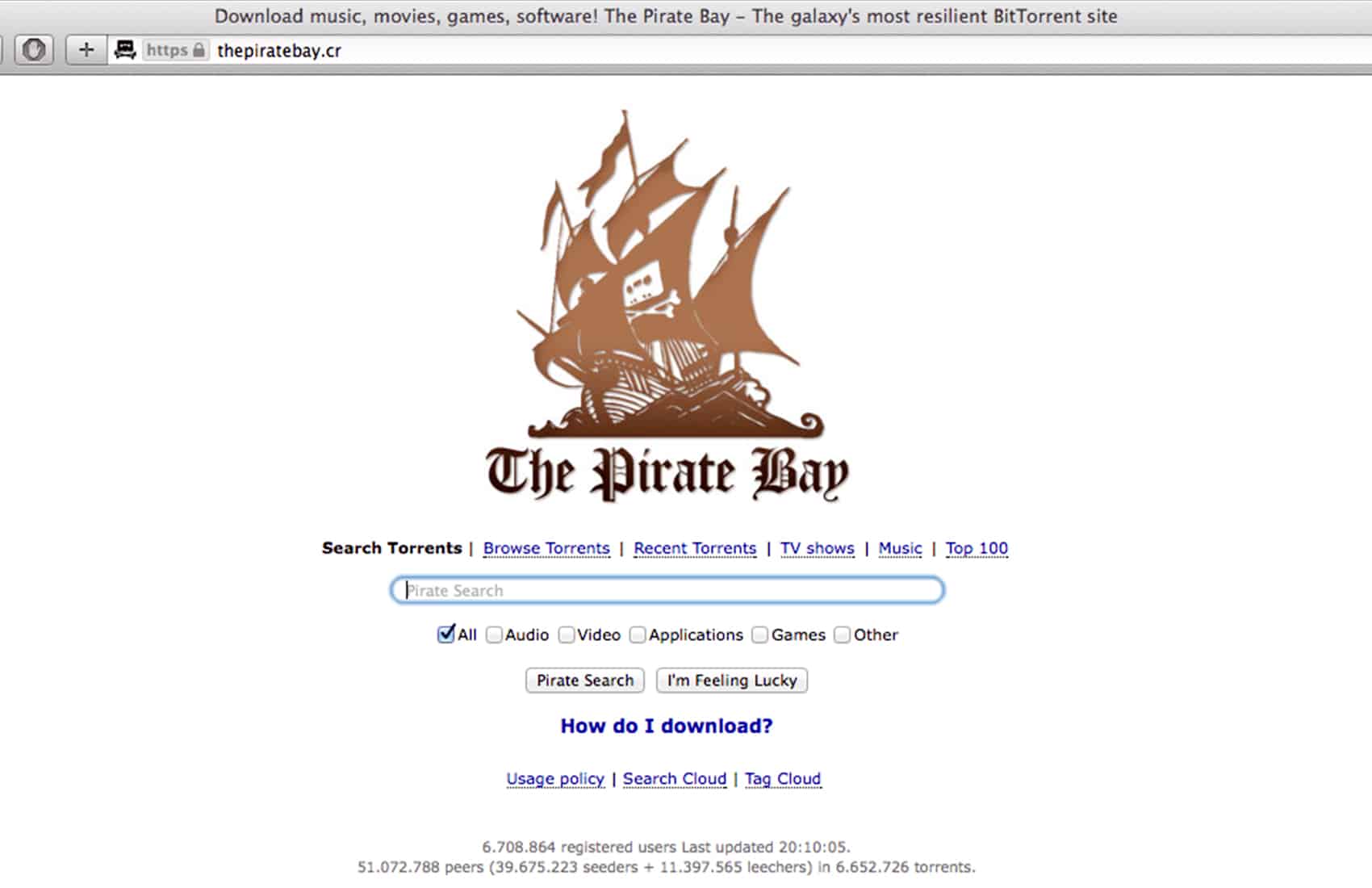The popular file-sharing website The Pirate Bay was taken down Tuesday morning following a police raid in Sweden, but only a few hours later it was relaunched as thepiratebay.cr, meaning it is now parked at a Costa Rica domain.
The website initially appeared Tuesday evening as a placeholder with queries resulting in an error page. But by Wednesday morning the search function was up and running.
“While it does not mean the site is operating from Costa Rica, the new address relates to the country. Their new servers can be anywhere in the world, and the .cr address works to redirect the information to their new location” explained Diego Hidalgo, an IT consultant with the Costa Rican company GDR Solutions.
Swedish cops on Tuesday raided a server room in Stockholm and seized servers and computers, citing copyright violations. The hardware was servicing the website thepiratebay.se, which redirects from thepiratebay.org.
A search at NIC-Costa Rica, the agency in charge of the domain name administration and the only one authorized to issue a .cr domain, indicates that someone named Akram Khan from India registered the address on Sep. 26 for a one-year contract.
NIC-Costa Rica Executive Director Rosalía Morales Acosta said they can remove the .cr address with an order from the Prosecutor’s Office, but as of Wednesday morning they had not received a request to act against the site’s new Tico address.
Tatiana Vargas, a spokeswoman for the Prosecutor’s Office, said they are verifying with international organizations the details of the police action in Sweden to evaluate a potential removal action against the Costa Rica-related address.
In addition to its file-sharing section, the police raid also affected the site’s user forum Suprbay.org, which also is down, as well as related websites Bayimg.com, Pastebay.net, EZTV, Zoink, Torrage and Istole.
“There were a number of police officers and digital forensics experts there. This took place during the morning and continued until this afternoon. Several servers and computers were seized, but I cannot say exactly how many,” Swedish prosecutor Fredrik Ingblad told Radio Sweden.
Founded in 2003, The Pirate Bay has been in legal disputes for years, but has managed to stay afloat despite efforts by governments, anti-piracy groups and the music and film industries to close it down.
The site uses torrenting, a form of peer-to-peer sharing, where Internet users download files directly from each other, rather than from a website.
Pirates can search for copyrighted material such as films, games, music or software at The Pirate Bay and download them via other users.
International efforts have led to the jailing of the service’s founders. However, co-founder Peter Sunde was released from custody in Sweden last month after serving a five-month sentence for aiding copyright infringement.
Last week, a French court ordered Internet service providers operating in the country to block customer access to The Pirate Bay.
In October, The Pirate Bay’s co-founder, a Swedish national named Gottfrid Svartholm, was convicted in Denmark and sentenced to 3.5 years in prison. Although that conviction was unrelated to file-sharing, it follows a previous 2009 conviction for copyright violations related to the file-sharing service.
Svartholm was convicted on copyright charges along with his Pirate Bay co-founders, Fredrik Neij, Peter Sunde and Carl Lundstrom.






